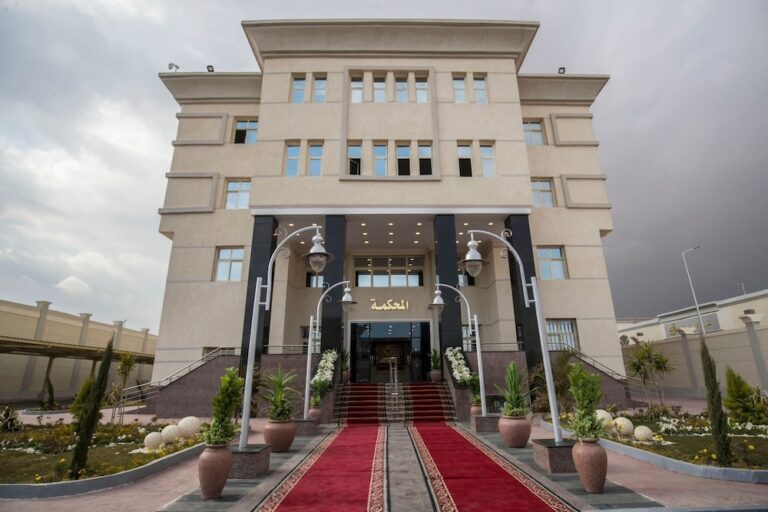(ANHRI/IFEX) – Human rights organizations have signed a statement expressing their condemnation of the trial of Magdi El-Shafei, author of the first Egyptian graphic novel, “Metro”, and the publishing house that printed his book. El-Shafei and the publisher were brought before the Cairo Misdemeanours Court on charges of “publication and distribution of publications contrary to […]
(ANHRI/IFEX) – Human rights organizations have signed a statement expressing their condemnation of the trial of Magdi El-Shafei, author of the first Egyptian graphic novel, “Metro”, and the publishing house that printed his book. El-Shafei and the publisher were brought before the Cairo Misdemeanours Court on charges of “publication and distribution of publications contrary to public morals.” Both face up to two years in prison.
The case began in April 2008, when police broke into the Malamih publishing house and confiscated all copies of the book from the publisher, as well as from bookstores in which the novel had been displayed. Two days later, Malamih notified the Department of Public Prosecutions which in turn, accused the author and publisher of violating articles 178 and 198 of the Penal Code, which punish “publications contrary to public decency” with imprisonment for a term which may extend to two years.
Sometime later, in May 2008, human rights organizations were surprised by a lawyer from the National Party, who is known for tracking journalists and political opponents. This was the same lawyer who declared political “Hisba” against journalist Ibrahim Issa, editor of the independent newspaper “Al-Dustour”. The lawyer filed the same accusations made by the Vice Squad against the publisher and the author and followed up by referring the case to the Public Prosecutor of the Court of Misdemeanors, which represents a serious shift in “Hisba” lawsuits and a monstrous attack on freedom of creativity in Egypt.
Human rights organizations defending the author and publisher said that “literary criticism is the only way to judge a creative literary work, and the prosecution of the author and publisher in the criminal court is considered a blatant attack on freedom of expression and freedom of creativity.”
It is worth noting that “Metro” is a graphic illustrated story, in the form of a dialogue between its characters using colloquial language to relate the story of a frustrated person who tries to steal and fails. The Vice Squad found that some words were “abusive”, even though they are commonly used by the public as well as by police officers themselves.
Lawyer Rawda Ahmed, of ANHRI’s legal counsel unit for freedom of expression, said, “If we allowed police officers or clergy to prosecute literary works, that would completely kill creativity and freedom of expression. The violation by police of freedom of expression in Egypt is not unusual, but the acceptance of this lawsuit by the Public Prosecutor is completely absurd.”
The case is to be considered by the Court of Misdemeanours on 4 April 2009.
Human rights organizations strongly condemned the prosecution of a literary text before a criminal court. In the meantime, the Minister of Culture, who is basically an artist, has been nominated for the post of Director-General of UNESCO. ANHRI questioned the fact that the Egyptian government has nominated a person who is unable to protect intellectuals and artists in his own country for such a post.
Updates alert on the raid on the Malamih publishing house, see: http://ifex.org/en/content/view/full/92664
For further information on the Ibrahim Issa case, see: http://ifex.org/en/content/view/full/100521


